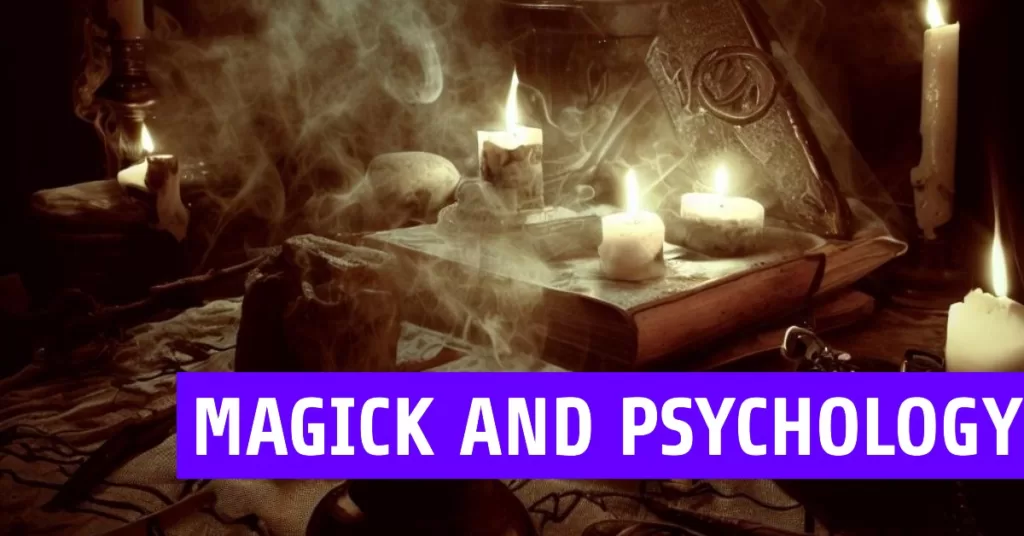Magickal practices have been a part of human culture for centuries, with roots in ancient traditions and beliefs. These practices involve the use of various rituals, spells, and symbols to manifest desired outcomes or connect with spiritual forces. While some view magick as a purely mystical or supernatural phenomenon, others believe that it can be understood through a psychological lens.
From a psychological perspective, magickal practices may be seen as ways to tap into the power of the mind and subconscious. By using specific techniques and symbolism, practitioners aim to influence their thoughts, emotions, and behaviors in order to achieve their goals. This article will explore the relationship between magickal practices and psychology, examining how these practices work from a scientific standpoint and why people engage in them for personal growth and development.
Table of Contents
- 1 Key Takeaways
- 2 What Is Magick?
- 3 How Can Magickal Practices Be Explained From A Psychological Perspective?
- 4 Why Do People Engage In Magickal Practices?
- 5 Practical Uses Of Magick
- 6 The Role Of Magickal Practices In Performance Coaching
- 7 Frequently Asked Questions
- 7.1 Can Magickal Practices Be Harmful to One’s Mental Health?
- 7.2 Is There Any Scientific Evidence Supporting the Effectiveness of Magickal Practices?
- 7.3 What Is the Origin of Magickal Practices and How Have They Evolved Over Time?
- 7.4 How Can One Differentiate Between Genuine Magickal Experiences and Psychological Phenomena?
- 7.5 Are There Any Ethical Considerations to Keep In Mind While Practicing Magick?
- 8 Summary
Key Takeaways
- Magickal practices involve rituals, spells, and symbols to manifest desired outcomes or connect with spiritual forces, and can be understood through a psychological lens as a way to tap into the power of the mind and subconscious.
- These practices involve a deep dive into one’s psyche using techniques such as meditation, ritualistic behavior, and divination and may involve working with repressed parts of our minds, which can be accessed through working with the ‘shadow self’ or ‘demonic entities’.
- Magickal practices can be a powerful tool for personal growth and self-discovery when used ethically and responsibly and can provide a sense of empowerment and control over one’s life through intentional manifestation techniques.
- In performance coaching, mental conditioning strategies such as positive affirmations and visualization techniques are used to enhance self-awareness and focus, and belief plays a significant role in shaping an individual’s mindset toward achieving their goals.
What Is Magick?
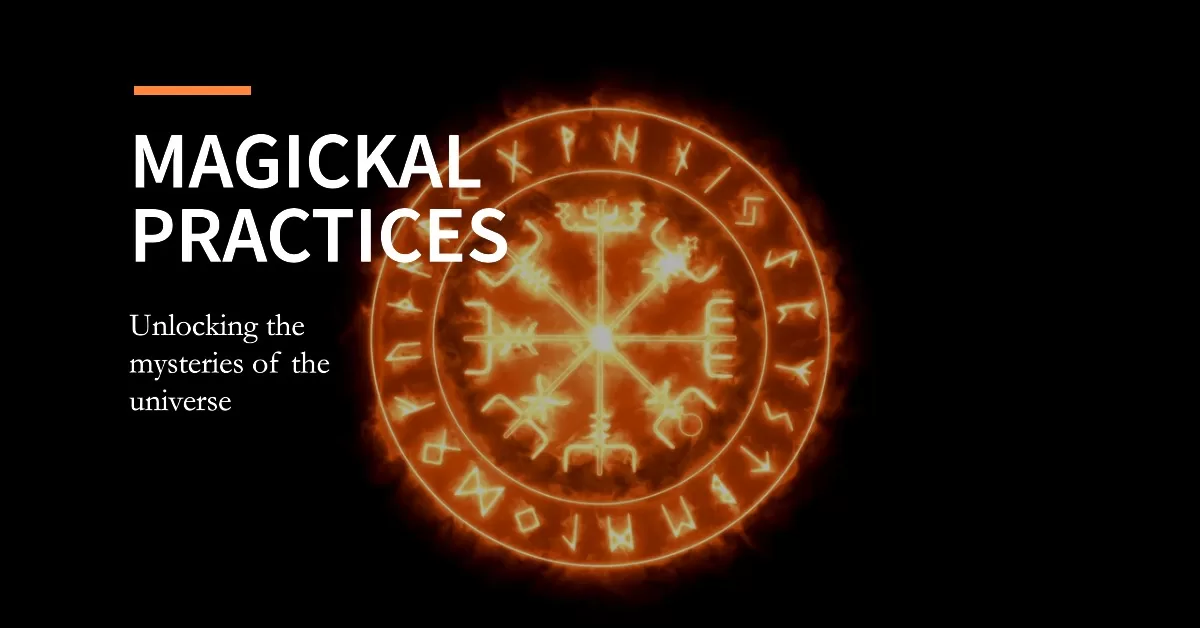
This discussion focuses on magickal practices from a psychological perspective, particularly in relation to self-transformation work. It delves into the distinction between serious occult practices versus ‘New Age’ approaches, with a focus on the left-hand path and shadow work as ways to process traumas. Additionally, the discussion explores spiritual enlightenment as a term that refers to mental clarity and emotional intelligence, rather than an esoteric or mystical concept. An objective and analytical approach is taken throughout this examination of magickal practices for personal transformation.
Self-Transformation Work: Serious Occult Practices vs ‘New Age’
Serious occult practices, self-transformation work, and ‘New Age’ can be distinguished from each other based on the level of commitment and depth of psychological exploration involved in the former. Serious occult practices involve a deep dive into one’s psyche, using techniques such as meditation, ritualistic behavior, and divination to explore the inner workings of one’s mind. These practices require a high level of dedication, often taking years to master.
In contrast, ‘New Age’ work tends to focus more on wishful thinking, surface-level changes, and quick fixes. This type of practice may involve using herbs, crystals, and other requisites to repel ‘negative energies’ or positive affirmations aimed at manifesting desired outcomes. While these practices may lead to short-term improvements in one’s life, they lack the depth required for lasting transformation. It is important for individuals interested in magickal practices to carefully consider their intentions and goals before embarking on any path, as different approaches will yield vastly different results.
Left-Hand Path And Shadow Work As A Way To Work Through Traumas
Left-Hand Path and shadow work involve exploring the darker aspects of one’s psyche as a means of confronting and processing past traumas. The Left-Hand Path is a term used to describe spiritual practices that focus on individualism, self-empowerment, and rejection of traditional religious morality. Shadow work, on the other hand, is the process of acknowledging and integrating one’s suppressed emotions, desires, and impulses into their conscious awareness.
The goal of both practices is to gain a deeper understanding of oneself by facing one’s fears and limitations. By delving into the subconscious mind, individuals can identify unresolved emotional wounds caused by past traumas. This process not only helps in healing but also allows for personal growth. However, it should be noted that these practices are not suitable for everyone and require careful consideration before embarking on them as they can be emotionally challenging.
Spiritual Enlightenment: A Fancy Term For Mental Clarity And Emotional Intelligence
Achieving spiritual enlightenment involves attaining mental clarity and emotional intelligence, which allows individuals to gain a deeper understanding of themselves and the world around them. This concept has been present in various cultures for centuries, with different practices aimed at achieving this state of being. In psychology, spiritual enlightenment is often associated with self-actualization or the realization of one’s full potential.
Mental clarity is an essential component of spiritual enlightenment as it involves having a clear and focused mind that can perceive reality without any biases or distortions. It enables individuals to understand their thoughts, emotions, and behaviors better and make conscious choices that align with their values and goals. Emotional intelligence also plays a crucial role in achieving spiritual enlightenment as it involves being aware of one’s emotions, managing them effectively, and using them to guide behavior positively. Individuals who have attained spiritual enlightenment are known for their wisdom, empathy, and compassion toward others, and have a deep sense of peace within themselves.
How Can Magickal Practices Be Explained From A Psychological Perspective?
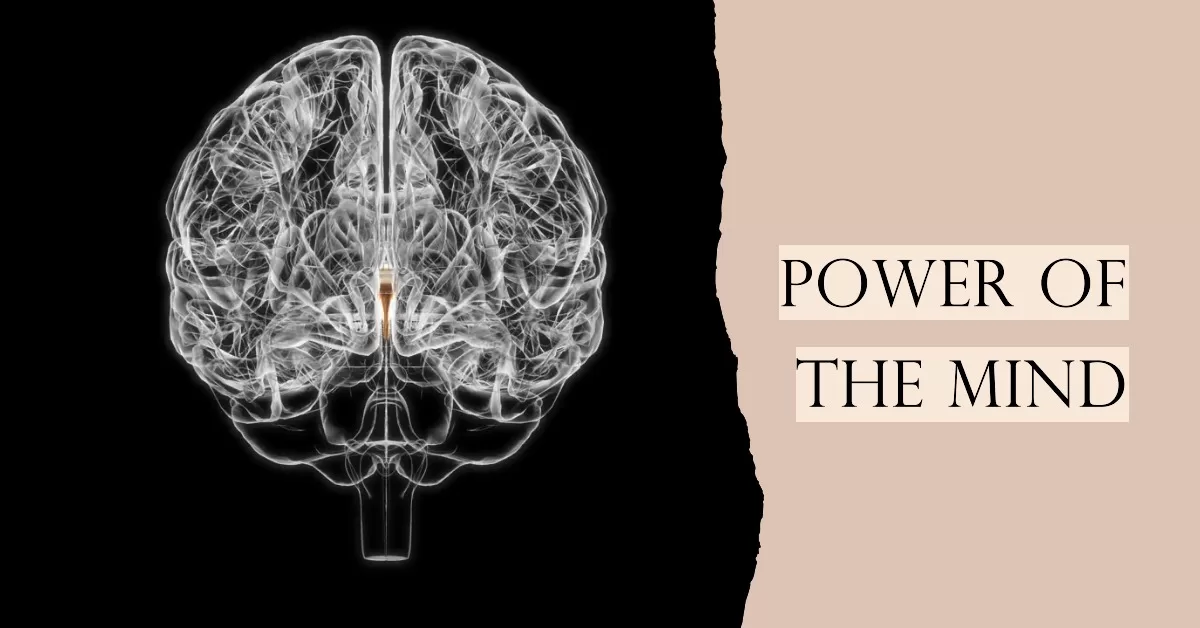
Magickal practices have been studied from various perspectives, and one of them is psychology. The psychological perspective suggests that magick may involve working with repressed parts of our minds, which can be accessed through the use of demonic entities. Additionally, magick practitioners may also utilize mind programming techniques to induce deep trance states and altered states of consciousness. Moreover, deep meditation is often used as a tool for mental self-exploration in magickal practices from a psychological perspective.
Repressed Parts Of Our Minds: Working With Demonic Entities
Exploring the repressed aspects of our psyche through interactions with demonic entities can offer insight into the depths of our subconscious mind. These ‘entities’ are often seen as representations of our shadow selves, containing all the parts that we have tried to push away or ignore. By working with them, we can gain access to these repressed parts and begin to integrate them into our conscious awareness.
However, it is important to approach this type of work with caution and respect. The use of demonic entities in magickal practices has been controversial and even dangerous for some individuals. It is crucial to have a strong foundation in psychological understanding before attempting such practices and to seek guidance from experienced practitioners or mental health professionals. With proper care and attention, working with these entities can be a powerful tool for personal growth and self-discovery.
Mind Programming: Deep Trance And Altered States Of Consciousness
The phenomenon of mind programming involves inducing deep trance and altered states of consciousness to access unconscious mental processes. This practice is commonly used in magickal rituals, where the practitioner aims to communicate with spiritual entities or access hidden knowledge. The use of hypnosis, meditation, chanting, and other techniques can create a shift in the individual’s awareness, allowing them to bypass their conscious mind and tap into deeper levels of consciousness.
In psychology, this technique has been used for therapeutic purposes as well. Through hypnosis or guided imagery, individuals can access repressed memories or emotions that are impacting their current behavior. It is believed that by accessing these unconscious mental processes, individuals can gain insight into their patterns of behavior and change them more easily. While some may view mind programming as a form of manipulation or brainwashing, it has also been recognized as a powerful tool for personal growth and transformation when used ethically and responsibly.
Deep Meditation As A Form Of Mental Self-Exploration
Deep meditation has been recognized as a powerful tool for individuals to gain insight into their own mental processes and promote personal growth and transformation. This form of mental self-exploration allows individuals to access altered states of consciousness that can lead to profound insights, increased creativity, and improved emotional regulation. Through deep meditation, practitioners can learn how to shift their attention away from external stimuli and focus inwardly on their thoughts, emotions, and bodily sensations.
Many researchers have explored the benefits of deep meditation in various contexts, including clinical settings such as anxiety disorder treatment. Studies have shown that regular practice of deep meditation can lead to structural changes in the brain associated with improved cognitive function, emotional regulation, and stress reduction. Furthermore, some practitioners have reported experiencing mystical or spiritual experiences during deep meditative states that have transformed their worldview and sense of self-identity. Overall, deep meditation represents a promising avenue for mental self-exploration that can lead to significant personal growth and transformation for those who engage with it regularly.
Why Do People Engage In Magickal Practices?
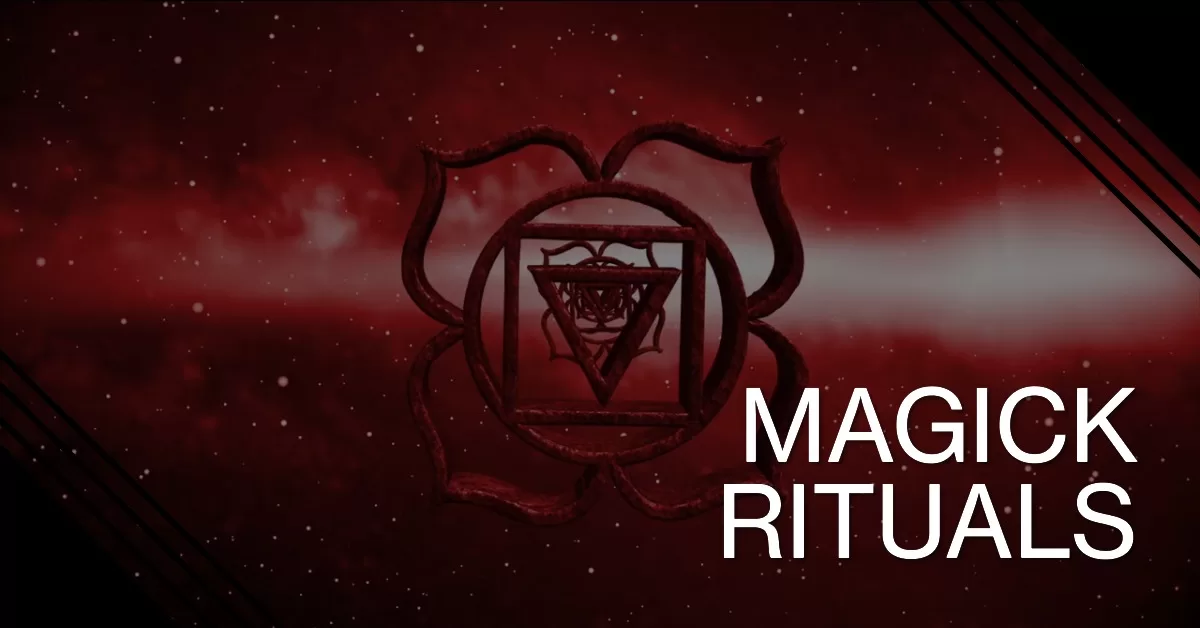
The practice of magick has been around for centuries and continues to intrigue many people. One reason why individuals engage in magickal practices is to experience a mindset shift and personal empowerment. By tapping into their inner power, practitioners believe they can achieve their desired outcomes with greater ease. Some people also view magick as a way to increase creativity and productivity, allowing them to access new ideas and approaches. Finally, working with the mind in this way can be seen as an exciting alternative to traditional methods of self-improvement and personal development.
Mindset Shift And Personal Empowerment
Moreover, a shift in mindset toward personal empowerment is necessary to effectively incorporate magickal practices from a psychological perspective. This entails recognizing that the individual has the power to shape their reality and create change through their thoughts and actions. By tapping into this inner power, individuals can use magickal practices as tools for self-improvement and growth.
To further emphasize the importance of this mindset shift, a table comparing a victim mentality versus an empowered mindset can be incorporated:
| Victim Mentality | Empowered Mindset |
|---|---|
| Blames others or circumstances for problems | Takes responsibility for actions and outcomes |
| Feels helpless and powerless | Recognizes their own agency and ability to create change |
| Focuses on limitations and obstacles | Focuses on possibilities and opportunities |
| Is passive in dealing with challenges | Proactively seeks solutions |
By adopting an empowered mindset, individuals are better equipped to not only utilize magickal practices but also navigate life’s challenges with resilience and confidence. It allows them to tap into their inherent potential and cultivate a sense of personal agency, leading to greater fulfillment in all aspects of life.
Magick As A Way To Increase Creativity And Productivity
Shifting mindset and empowering oneself is one of the primary goals in magickal practices. It allows individuals to tap into their inner power, enabling them to manifest their desires and achieve their goals. However, the benefits of magick do not stop there. Another way that magick can be useful is by increasing creativity and productivity.
Magick has been found to enhance creativity by allowing individuals to tap into their subconscious minds. By doing this, they are able to access thoughts and ideas that may have been hidden or suppressed before. Through meditation, visualization, and other magickal practices, individuals can also increase focus and concentration which further boosts productivity. This shift in focus from external distractions to internal processes can lead to more efficient use of time and resources. As a result, individuals who practice magick find themselves accomplishing more tasks with greater ease than before.
A More Exciting Way To Work With The Mind
Exploring alternative methods of engaging with the mind can add excitement and creativity to one’s personal and professional life. One such method is magickal practice viewed from a psychological perspective. This approach involves using ritual, symbolism, and visualization as tools for self-exploration and personal growth while remaining self-conscious about the mechanisms behind the scenes and treating it merely as a way to influence the mind.
- By engaging in magickal practices, individuals may gain a deeper understanding of their unconscious mind and how it influences their thoughts, emotions, and behaviors.
- These practices can also help individuals tap into their creativity by accessing their imagination and exploring new ways of thinking.
- Additionally, magickal practices may provide a sense of empowerment and control over one’s life through intentional manifestation techniques.
While some may view this approach as unconventional or even taboo, there is growing empirical evidence supporting its effectiveness in promoting mindfulness, reducing stress levels, enhancing emotional regulation skills, and increasing overall wellbeing. By incorporating these methods into daily life, individuals may discover a more exciting way to work with the mind that opens up new possibilities for personal growth and transformation.
Practical Uses Of Magick
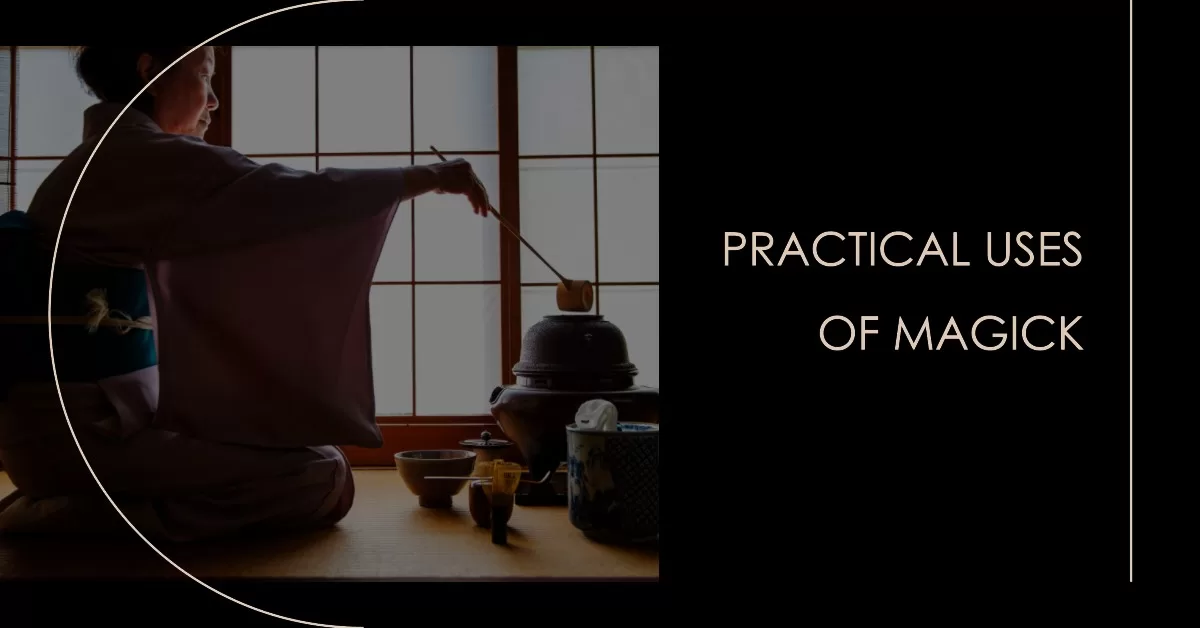
Magickal practices have been used by individuals for various practical purposes. One such purpose is divination, which serves as a way to communicate with the unconscious mind allowing one to gain insight into their psyche and their place in the world. Meditation practice is another common magickal practice that has been shown to improve mental wellbeing through mindfulness techniques. Lastly, ritual dancing offers an opportunity for people to express themselves emotionally and tap into the power of movement as a form of healing and self-discovery. These practices offer practical applications for those seeking personal growth and development through magickal means.
Divination As A Way To Communicate With The Unconscious Mind
Divination, a centuries-old practice, has been studied from a psychological perspective as a way to communicate with the unconscious mind. The act of divining involves using various tools and rituals to access information that is not readily available through rational means. Those who practice divination believe that it can help them gain insight into their own lives, make better decisions, and even predict future events.
From a psychological perspective, divination can be seen as a form of introspection or self-reflection. By engaging in the ritualistic practices involved in divination, individuals are able to tap into their unconscious minds and access information that they may not have been aware of otherwise. Additionally, divination can serve as a tool for personal growth and development by providing individuals with insights into their motivations, desires, and fears. Some other benefits of practicing divination include:
- Increased self-awareness;
- Improved decision-making skills;
- Reduced anxiety or stress;
- A sense of connection with something greater than oneself.
Meditation Practice For Improved Mental Wellbeing
Meditation practice has been shown to have numerous benefits for mental wellbeing. Studies have found that regular meditation can reduce symptoms of anxiety and depression, improve focus and concentration, and increase feelings of calmness and relaxation. These benefits are thought to arise from the way meditation alters brain activity, particularly in areas of the brain associated with emotion regulation. By practicing mindfulness – the act of focusing attention on the present-moment experiences without criticism and attachment – individuals learn to observe their thoughts and emotions without becoming overwhelmed by them. This can lead to a greater sense of control over one’s internal state, reducing negative emotional reactivity.
Furthermore, research suggests that long-term meditation practice may even lead to structural changes in the brain. Studies found that experienced meditators had greater gray matter volume in regions related to cognitive control and emotional regulation compared to non-meditators and reported increased connectivity within brain networks involved in self-referential processing. These findings suggest that regular meditation not only improves mental wellbeing but may also have lasting effects on the structure and function of the brain itself.
Ritual Dancing As A Way To Express Our Emotions
Ritual dancing is a form of expressive movement that allows individuals to communicate their emotions non-verbally through physical gestures and rhythmic patterns. It has been practiced across cultures and time periods as a way to celebrate, heal, mourn, and connect with the divine or spiritual realms. From an anthropological perspective, ritual dancing can be seen as a way for individuals or groups to create a shared experience that reinforces social bonds and cultural identity.
From a psychological perspective, ritual dancing can be viewed as a means of expressing and regulating emotions. Research suggests that dance therapy can improve mood, reduce anxiety, enhance self-esteem, and increase feelings of connectedness to others. Through dance movements, individuals may access deep-seated emotions that are difficult to express verbally or through other forms of communication. The repetitive nature of many dance rituals may induce altered states of consciousness that allow for greater emotional release and insight into one’s inner world. Overall, ritual dancing offers a unique opportunity for individuals to engage in embodied expressions of emotion that promote mental wellbeing and personal growth.
The Role Of Magickal Practices In Performance Coaching

The role of magickal practices in performance coaching involves mental conditioning strategies to reprogram the mind, esoteric ways to cultivate positive habits, and the power of belief and priming the mind for high performance. These techniques are aimed at optimizing an individual’s potential by harnessing their inner resources. The use of magickal practices in performance coaching is gaining recognition as a powerful tool for enhancing human potential beyond traditional approaches.
Mental Conditioning Strategies To Reprogram The Mind
Conditioning the mind through repeated exposure to positive affirmations and visualization techniques can help reprogram limiting beliefs and behaviors. These mental conditioning strategies are often used in magickal practices to enhance self-awareness, increase focus and concentration, and improve overall wellbeing. The idea is that by focusing on positive thoughts and images, individuals can gradually shift their mindset toward a more optimistic outlook, which can lead to improved performance, higher levels of creativity, and greater success in achieving personal goals.
One example of a mental conditioning strategy is the use of mantras or affirmations. By repeating a positive phrase such as ‘I am confident and capable’ over and over again (especially while in a state of deep trance), individuals can begin to internalize this message as truth. This can be especially effective when combined with visualization techniques that allow individuals to imagine themselves succeeding at their goals. Through consistent practice, these mental conditioning strategies can help reprogram the mind to think positively about oneself and one’s abilities, ultimately leading to improved performance and success in various areas of life.
Esoteric Ways To Cultivate Positive Habits
One effective way to cultivate positive habits is through the use of symbolism and imagery in daily life. Esoteric practices such as sigil magick, visualization, and affirmations can be used to create a mental image of a desired outcome or habit. This technique involves focusing one’s intention on a symbol that represents the desired outcome, such as drawing a sigil or creating an affirmation that embodies the new habit. By repeatedly visualizing this symbol or affirmation, it becomes ingrained in the subconscious mind and influences behavior toward achieving the goal.
To further enhance this process, individuals can incorporate other elements into their daily routine to reinforce this new habit. For example:
- Creating an altar with objects that represent the desired outcome;
- Using scents, herbs, or oils associated with positive change;
- Incorporating physical movement or yoga poses to anchor the desired state;
- Keeping a journal to track progress and reflect on any obstacles.
By integrating esoteric practices with other sensory experiences in daily life, individuals can tap into their subconscious mind to cultivate positive habits and achieve personal transformation.
The Power Of Belief And Priming The Mind For High Performance
Belief plays a crucial role in priming the mind for high performance, as it can influence one’s mindset and motivation toward achieving their goals. Individuals who believe in their abilities are more likely to take action toward achieving their goals, compared to those who doubt themselves. This is because belief influences one’s perception of their abilities and potential outcomes, which in turn affects their level of motivation and persistence.
Moreover, priming the mind with positive beliefs and thoughts can enhance performance by improving cognitive functions such as attention, memory, and problem-solving skills. Positive affirmations have been found to be effective in enhancing self-esteem and confidence levels, which can lead to better performance outcomes. In conclusion, belief plays a significant role in shaping an individual’s mindset toward achieving their goals. Through the power of positive thinking and priming the mind with affirmative beliefs and thoughts, individuals can enhance their cognitive functions leading to higher levels of performance.
Frequently Asked Questions

Read through this Q&A section if you still have more questions about the effectiveness and safety of occult practices. It covers the topics not mentioned above and sheds more light on the situation allowing you to fully understand the topic.
Can Magickal Practices Be Harmful to One’s Mental Health?
Magickal practices can have both positive and negative effects on mental health. While some individuals may experience spiritual growth and enhanced wellbeing, others may be at risk for delusion, dissociation, or other psychological issues.
Is There Any Scientific Evidence Supporting the Effectiveness of Magickal Practices?
While there is limited direct research on the effectiveness of magickal practices, some studies suggest that visualization and other techniques (e.g. meditation) can have a positive impact on mental health. Further research is needed to fully understand their potential benefits.
What Is the Origin of Magickal Practices and How Have They Evolved Over Time?
The origin of magickal practices can be traced back to prehistoric times when shamanism and animism were practiced. Over time, these practices evolved into various forms such as witchcraft and ceremonial magick, influenced by cultural and religious beliefs.
How Can One Differentiate Between Genuine Magickal Experiences and Psychological Phenomena?
Differentiating between genuine magickal experiences and psychological phenomena is challenging due to subjective interpretation. However, using scientific methods to study the brain during such experiences can provide insight into their origin and nature.
Are There Any Ethical Considerations to Keep In Mind While Practicing Magick?
Ethical considerations in practicing magick involve the harm principle, consent, and respect for cultural traditions. One must consider potential consequences for themselves and others, and adhere to moral standards, especially when involving others.
Summary
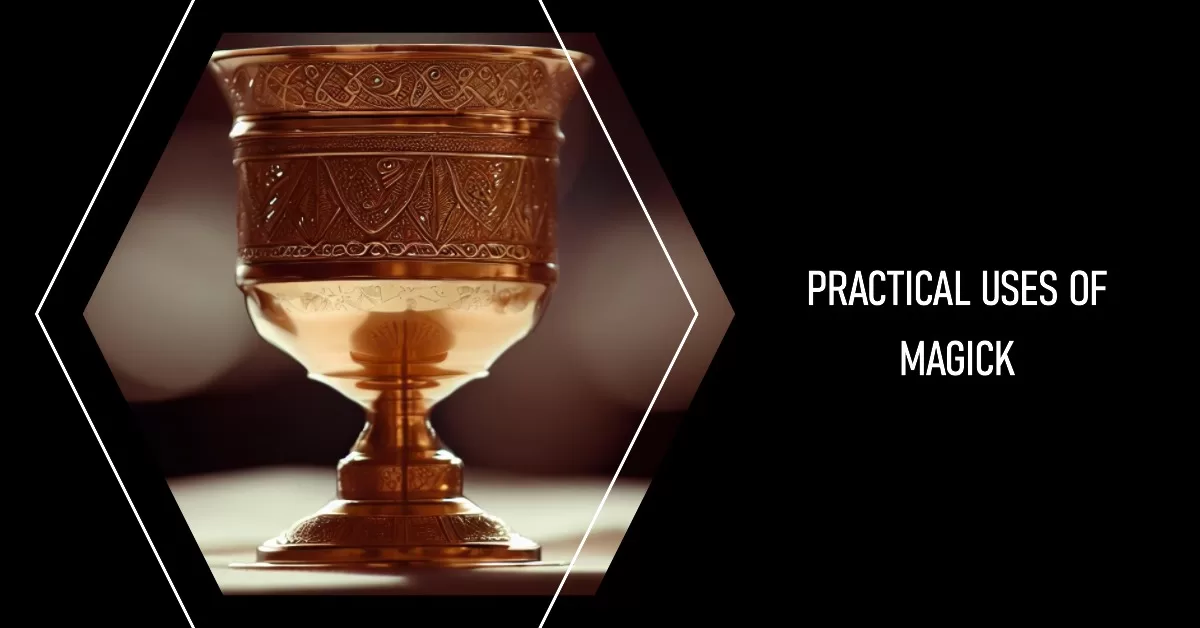
Magickal practices have been a part of human culture and history for millennia, but their nature and origins remain subjects of debate. From a psychological perspective, magick is often seen as a form of self-directed mental programming that allows individuals to focus their intent on achieving specific outcomes. This approach views magick as a set of techniques and rituals that utilize the power of suggestion, visualization, and symbolic manipulation to create desired changes in one’s subjective experience or external reality.
The appeal of magickal practices lies in their potential to provide individuals with a sense of control over their lives and circumstances. By engaging in rituals or spells, practitioners may feel empowered by connecting with larger spiritual forces or by tapping into their own hidden resources. Furthermore, magick can serve as an effective tool for personal growth and transformation by helping individuals develop greater self-awareness, discipline, creativity, and resilience.
However, it is important to note that not all claims made by magickal practitioners are scientifically verifiable or empirically supported. While some studies suggest that certain aspects of magick such as meditation or guided imagery can have beneficial effects on mental health and wellbeing, other claims such as divination or spell casting lack empirical evidence. As such, it is crucial to approach these practices with a critical eye while acknowledging the potential benefits they may offer for personal development and empowerment.
In conclusion, understanding magickal practices from a psychological perspective provides valuable insights into the human psyche’s capacity for self-directed change through intentionality and symbolism. While some aspects of magick may lack scientific validity or empirical support, many practitioners find value in its potential for personal growth and transformation. Ultimately it is up to each individual to decide whether they wish to engage in these practices while maintaining an open-minded yet discerning attitude toward their effectiveness and validity.

